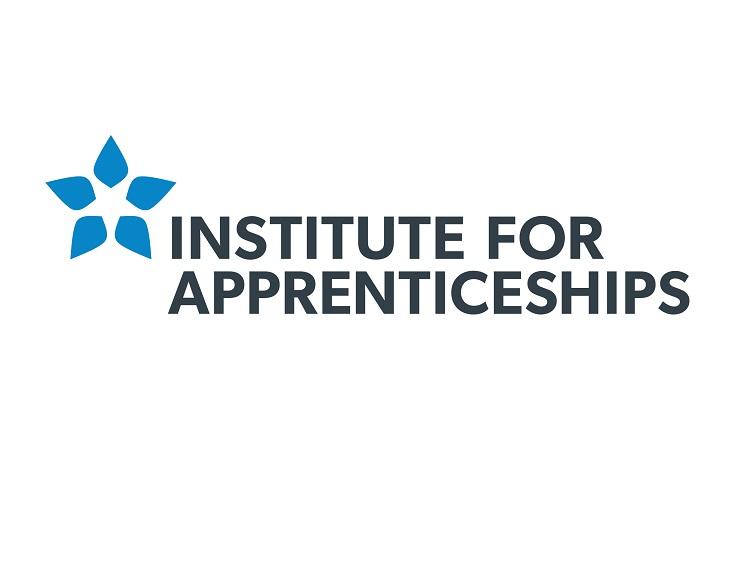IfA’s Strategic plan 2018 – 2023

The Institute is passionate about delivering quality apprenticeships and technical education to support employers, potential apprentices and the economy as a whole. We are proud of our progress so far in developing our capability to deliver these core functions and in helping to realise this potential.
The Board has set the vision for the organisation and intend to realize this through three strategic principles: efficient, quality solutions; collaborative relationships; and building credibility and transforming the landscape. By adhering to these principles, the Institute will continue to be focused not only on continuously improving its own approach but supporting and working in collaboration with others to transform apprenticeships and technical education.
STRATEGIC PRINCIPLES
Efficient, quality solutions
Run efficient and effective systems, which deliver quality decisions and solutions for employers
We have established streamlined systems for the approval of standards and assessment plans and making recommendations on funding bands. We will use feedback, analysis and intelligence to influence the continual review and development of our approach. This will enable us to evolve our priorities and focus, while continuing to deliver flexible solutions that promote quality in apprenticeships and technical education.
Efficient, quality solutions – our aspirations
Over the next five years, the Institute will be recognised as an operationally efficient organisation, who consistently delivers high-quality apprenticeships and T levels that employers want, to help transform the country’s skills landscape.
The Institute will have:
- supported the development, approval and publication of apprenticeship standards, to the extent that the country has a broad and relevant inventory of high-quality standards. This inventory will be periodically reviewed to ensure it continues to meet employer needs, has a good coverage of occupations and supports the government’s skills reform agenda;
- firmly embedded an effective digital system for all interactions between the Institute and those wishing to access its services;
- an approach to funding band advice which is valued and trusted by all those involved in the apprenticeship programme and provides accurate and timely advice to the DfE;
- a well established external quality assurance delivery solution, providing excellent feedback and continually improving end-point assessment across apprenticeships;
- successfully implemented all aspects of technical education delivery for which the Institute has responsibility and
- fully embedded a culture of continuous improvement into the organisation to ensure that it remains a ‘learning organisation’ able to quickly adapt its approach to address changes in the economy, feedback from stakeholders and utilise technological advances.
Collaborative relationships
Enhance relationships and embed better understanding – boost engagement and collaborative working
In establishing an employer-led structure, recruiting route panels, peer reviewers and engaging with stakeholder groups, the Institute has established a great number of relationships with those with an active interest in quality apprenticeships. The challenge remains to ensure that the mutual benefit of those relationships is clearly defined and organisations and individuals always feel they are working together with the Institute.
Collaborative relationships – our aspirations
Over the next five years, the Institute will develop
the relationships it has with the broad range of organisations who are actively engaged in the design and approval of apprenticeship standards and T levels. Those who have collaborative relationships with the Institute will clearly understand what the Institute can do to help and support them and the services or advice the Institute requires in return. In addition, these collaborative relationships will have generated a body of quality advocates; who support the Institute to define the view of apprenticeships and technical education. These relationships will:
- be mutually beneficial. Groups and individuals will be clear what the Institute provides and what the Institute expects in supporting the development and promotion of quality apprenticeships and technical education;
- ensure the Institute retains its fundamental ‘employer-led’ approach, but also provides representation and a voice for a broad range of other interested and engaged stakeholders, and partner organisations;
- recognise and celebrate the work trailblazer groups undertake in partnership with the Institute to develop new apprenticeship standards;
- support the Institute and its Board, by providing a compelling voice to promote the power of high- quality apprenticeships and technical education addressing skills gaps in the economy; and
- feed directly into the development of, not only the Institute’s corporate narrative, publications and events, but also the Board and development of the Institute’s future strategy.
Building credibility and transforming the landscape
Build our authority and grow our reputation – by making a lasting and sustained impact
The Institute has quickly built a good understanding of both the challenges faced and huge potential of the apprenticeship programme. Using this experience and knowledge, we need to work with our partners to continue improving the quality of the programme, celebrate its achievements, build understanding and improve access to quality apprenticeships and technical education.
Building credibility and transforming the landscape – our aspirations
Over the next five years the Institute will use its unique perspective to develop its authority and reputation as an expert and trusted source for information. Its core operations, employer-led approach and focus on quality will have a real and sustained impact on developing the skills landscape. Specifically it will have:
- maintained an effective and robust evidence- based narrative about the apprenticeship landscape and have consistently applied a data-driven approach to support our own and wider government objectives;
- developed a reputation for providing honest, evidenced and high-quality leadership when developing opinion on apprenticeships and technical education;
- established a reputation for being responsive, insightful and accurate through the advice and input it makes to the development of the apprenticeship and technical education policy;
- worked with its Quality Alliance to ensure that the concept of quality, defined in the Quality Statement, is fully understood and embedded into both the development and delivery of quality apprenticeships and technical
Alongside the strategic plan, the Institute has also published its business plan for 2018/2019. This plan, which can be found on our website, provides the Institute’s corporate objectives for the current financial year and the high-level performance measures by which progress will be monitored. All are derived from the Institute’s strategic principles and, ultimately, from our mission of ‘improving access to high-quality apprenticeships and technical education in order to transform the skills landscape’.











Responses